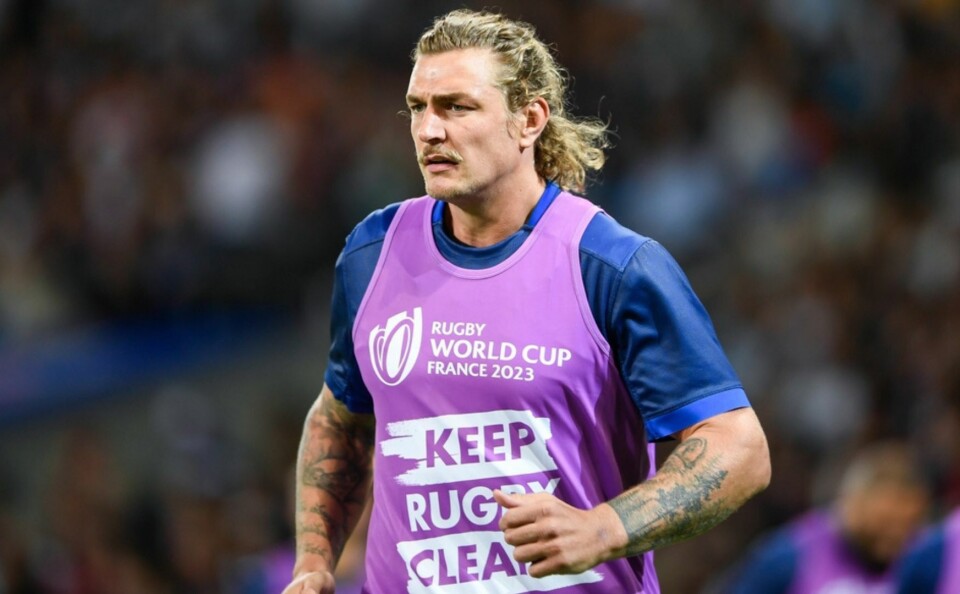-
The chaos on France's ski slopes is so sad, says retired instructor
Reader says she refused to teach children not wearing safety gear
-
Where to find good Indian food and curry ingredients in rural France
Connexion readers share their tips on finding spices that hit the spot
-
Ski helmets should be compulsory in France
Two readers share their views on risk and danger on the slopes
French rugby assault case puts spotlight on trial by social media
Online platforms should protect the presumption of innocence of anyone appealing a conviction, says French lawyer

The online backlash over convicted French rugby star’s inclusion on the national team highlights why social media platforms should uphold the presumption of innocence, claims French lawyer Olivier Mingasson.
France might have kicked off their Rugby World Cup campaign convincingly but the opening matches were dominated by controversy over their replacement second-row Bastien Chalureau.
Chalureau, who was called up to replace the injured Paul Willemse, was recently convicted of a racially-motivated assault on two other rugby players in 2020.
One of the victims was punched in the jaw and hospitalised with a neck sprain.
Chalureau’s inclusion on the national team, unsurprisingly, attracted headlines and social media posts.
The conviction resulted in a six-month suspended prison sentence.
Read more: Difference between contravention, délit and crime in France
Appeal means Chalureau is legally an innocent man
The 31-year-old Montpellier player has admitted the attack but denies the racist character of the incident and has appealed against that aspect of the ruling.
His next hearing will be in November, after the tournament has finished.
Until then, said Olivier Mingasson, a partner at the Montpellier and Béziers-based law firm Les Avocats du Thélème, Chalureau is legally an innocent man.
“If you appeal against a criminal decision, the first decision is void and has no effect. You are considered to be innocent again – you have the same presumption of innocence before the second court, the Court of Appeal. It is back to zero.
“People say he was found guilty, and that is true. However, he is still considered to be innocent until a new appeal court ruling.”
At an appeal the legal burden of proof is back on the prosecution
The presumption of innocence as a legal right exists in many countries and under many legal systems, including common law and civil law systems, he said.
It puts the legal burden of proof on the prosecution, which must present compelling evidence to a judge or jury that the charges are true – otherwise, the accused is acquitted.
“The idea is that, even if there are charges against someone, they have to be treated like an innocent as much as possible before any conviction, or any court order saying that they are guilty.
“It is a human right. It comes from the declaration of the French Revolution and the United Nations’ Universal Declaration of 1948.”
He added: “Sending someone to prison – basically, depriving someone of their freedom – is so important that there must be strong protection from any abuse from the state and from the police.
“It creates a balance, an equilibrium, because the state and police are so strong.”
Traditional media is careful not to judge
When asked how the presumption of innocence stands up against the 24-hour news cycle and social media, he replied: “It stands up pretty well with the traditional media, such as TV, radio and newspapers.
“Journalists know it exists and they try to be careful about it. They try not to qualify someone as guilty or not. They try not to say that someone did something, but say it is ‘alleged’ that they did this or that. I would say they do their best to respect it.
“Social media is another story and it’s very difficult. Sometimes users will disrespect the presumption of innocence.”
‘It is difficult to preserve yourself and maintain your dignity on social media’
Mr Mingasson said the Chalureau controversy is a case in point, and highlights why platforms need to do more to protect the principle.
“They have lots on their plates about many subjects, but this is one of the most important issues.
“If someone is being accused of something or, more than accused, treated as guilty when they are supposed to still be innocent before conviction, yes, they can do something about it.
“They can relay it to a social media moderator who should erase the message.
“Then, if they find the author, they can seek justice in the courts.
“But in reality, it is very difficult if you are being attacked by hundreds of people from everywhere. It is very difficult to bring legal action. It is difficult to preserve yourself and to maintain your dignity on social media because it would take so much legal effort.”
Read more: How France plans to tackle school bullying
You cannot say someone is guilty before the courts decide
The presumption of innocence is not restricted to celebrities on social media, either, added Mr Mingasson.
“When you talk about someone who is not in the public eye, it becomes more of a private matter.
“There won’t be as much light shed on the discussions, but it’s the same. Even in a small group, the principle applies.”
That does not mean that people cannot speculate or have an opinion, he said.
“You are free to state the facts: that there is an investigation and there are charges. That is totally acceptable.
“What you cannot do if someone is being accused of something is say that they have definitely committed whatever crime they are accused of until they are sentenced by the courts. But you can, of course, express yourself.”
Related articles
‘Rugby is the reason for my move to France’
See all dates and cities in France for Rugby World Cup 2023
Why footballer Kylian Mbappé could be France’s greatest soft power
























